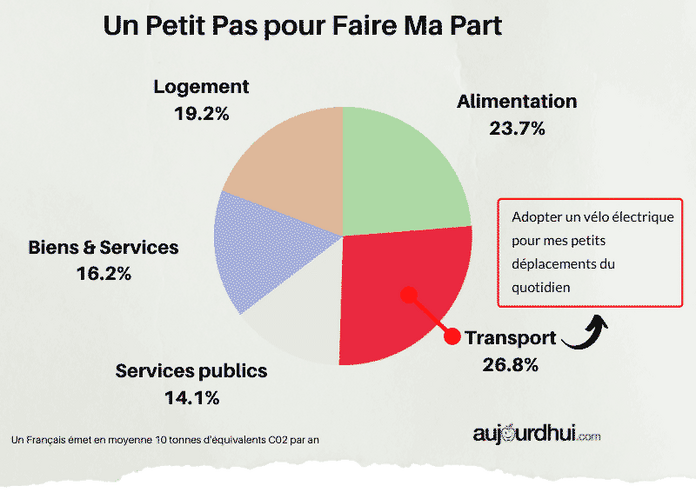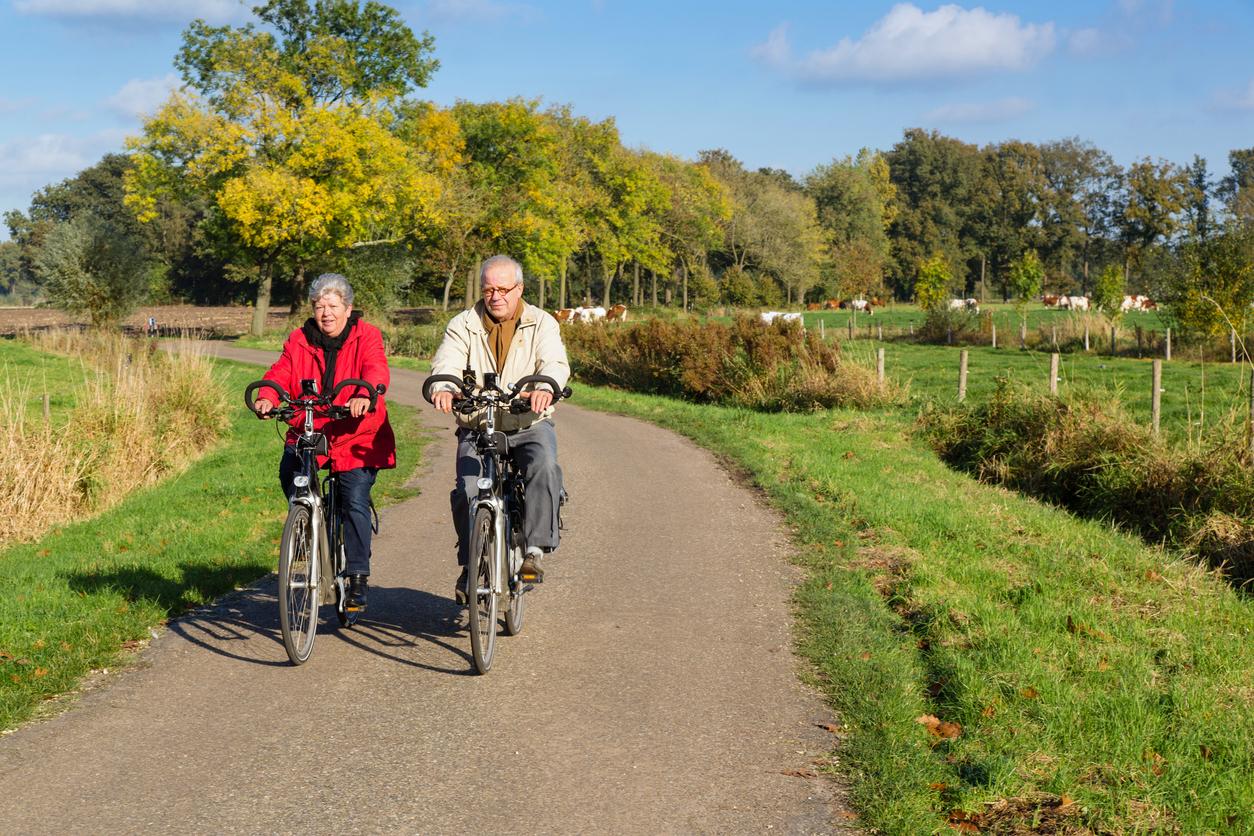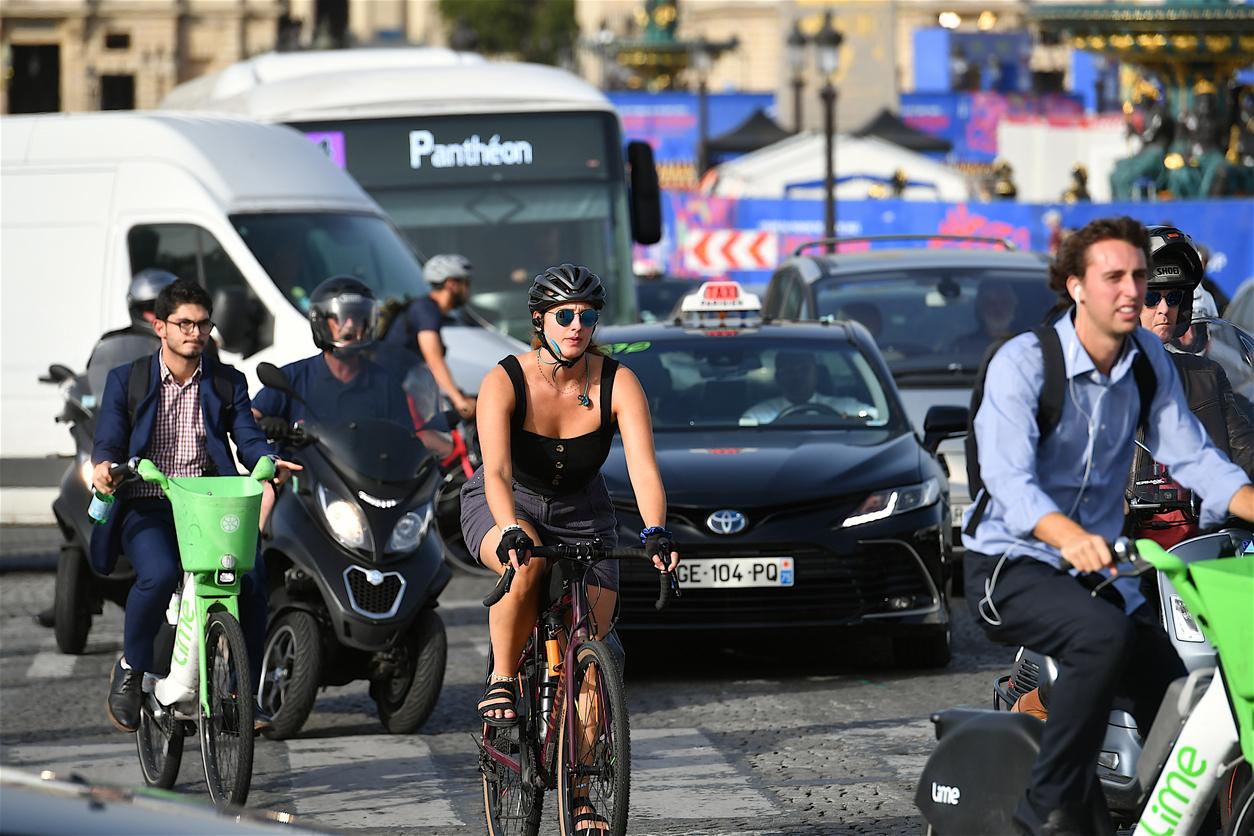The electric bike allows you to move effortlessly and without sweating, carrying a little more load than a conventional bike. When we know that half of the journeys of the French are less than 5 km, we can wonder if this is not an option to consider urgently for the eco-energy transition. Why choose an electric bike?
Half of the journeys of the French are less than 5 kilometers and yet, the use of individual car remains largely in the majority on these short journeys. However, one can legitimately think that the electric bike has considerable potential for these reduced distances.
One small step to do your part
Studies show it clearly: the fact of using an electrically assisted bicycle (or VAE) makes it possible to replace a good part of the short journeys. In many cases, the pedelec has even replaced the second car from the household. Imagine the impact of an electric bicycle on the air pollution andt on tone reduction carbon footprint personal.
I give you three arguments to feed your thoughts:
- To try it is to adopt it : 70% of electric bike users have replaced some daily car trips with trips by pedelec.
- Ademe estimates that for one kilometer travelled, greenhouse gas emissions are 94% times lower for the bike than for the car. The emissions of a petrol car that consumes 7.2 l/100 km are 15 kg CO2e per 100 km and those of a VAE are less than 0.5 (manufacturing and recharging included).
- Trips in town are on average 3 km, they pollute and, often, it is difficult to find a parking space. Electric bikes tick all the boxes !
If you want to do your part, ask yourself how long it would take you to make an electric bike profitable (from 1600 € investment) taking into account your daily travel needs. Good news (which will not last): there are ecological bonuses on the part of the State and certain regions which may help you with financing.

Sales have exploded in 5 years
In France, there are 35 million bicycles a good quarter of which are never used. Everyday cyclists represent only 5% of the population (compared to 30% in Denmark and 43% in the Netherlands). Fortunately, there are exceptions on the territory, starting with Strasbourg where the bike is 16% of trips home-work.
Since 2015, the electrically assisted bicycle (VAE) has literally exploded in France: its sales have quintupled in six yearsgoing from 102,000 units to 514,000. In monetary value (the average VAE costs just over 2000 euros), it now represents well over 50% of the French cycle market.
The electric bicycle thus has an important role to play in the reconquest of the bicycle in France and the energy transition. Ademe even calls it ” a major tool to reduce social and territorial fractures. »
Indeed, it has been observed that the electric bicycle is used more often and over longer distances than the conventional bicycle. It particularly affects older French people who no longer cycled at all.
Why choose an electric bike?
Why choose an electric bike? Quite simply because it represents a perfect solution for ecological routes. Moreover, for some years now, the VAE has already replaced the 2and car in many homes.
As the part of “human energy” remains important in the electric bicycle (the assistance is only there to reduce the effort), its energetic efficiency is remarkable. If we compare it to an electric Renault Zoé, a VAE is 60 times lighter and has a maximum power 260 times weaker.
With its batteries lithium and his needs electric charging (the average autonomy is between 50 and 75 km), the electric bike is not neutral for the environment. But it pollutes a lot less than an electric vehicle and near 100 times less than a thermal car.
In addition, it does not emit any harmful smoke. The quality of the air is thus preserved, which makes the electric bicycle a excellent means of transport to fight against pollution.
In conclusion
The development of electric bicycles for short journeys, particularly in town, could have a significant impact on oil consumption and the associated greenhouse gas emissions. Let’s not forget that transport counts for almostone third of final energy consumption in France and 90% of the energy consumed by the sector comes from fossil fuels.


















